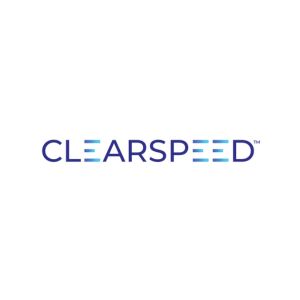
By futureTEKnow | Editorial Team
The life sciences sector is drowning in data, but not in actionable insights. That’s the paradox Argon AI is tackling head-on, and their recent $5.5 million seed round signals a growing appetite for AI-native solutions in pharma and biotech.
Pharmaceutical companies are sitting on mountains of information—internal data is reportedly doubling every two years. Commercial and medical affairs teams process tens of thousands of documents annually, often locked away in formats like PDFs, slide decks, and meeting notes. The result? Teams spend more time searching, compiling, and reformatting than actually making decisions. Nearly half of pharma executives admit they’re forced to make calls based on incomplete or outdated data, thanks to slow, siloed systems.
Argon AI isn’t just another dashboard or document management tool. It’s an AI-native workspace built specifically for life sciences. The platform unifies scattered company data—from SharePoint, Snowflake, Veeva, and more—and overlays it with Argon’s own continuously updated database of clinical and commercial sources.
The real kicker: teams can build custom AI agents that automate everything from primary market research and competitive tracking to clinical trial benchmarking and healthcare provider analysis. Imagine hundreds of hours of manual research compressed into minutes. As Randy Guzman, COO of Basis Health, put it, “This must have been how people felt when the first calculator was invented, and you realize I’ve spent all this time doing long division”.
Argon AI is already working with two of the top fifteen global pharmaceutical companies and has firm-wide deployments at leading life sciences consultancies. The promise is not just speed, but smarter, more transparent decision-making across commercial strategy, medical affairs, and R&D. As Phil Boyer of Crosslink Capital observed, the industry has been “ripe for this kind of transformation for over a decade”.
With its new funding, Argon plans to scale its team, deepen its product, and expand adoption across enterprise biopharma. The platform’s potential to save companies millions in misdirected R&D spending could have a direct impact on how quickly and safely new treatments reach patients.
AI is no longer a futuristic add-on for life sciences—it’s becoming the backbone of how high-performing teams turn overwhelming data into real-world impact. Argon AI’s approach, blending deep pharmaceutical intelligence with flexible, AI-driven workflows, is a strong signal of where the industry is headed: toward workspaces that are as dynamic and actionable as the inboxes we can’t live without.
Founded in 2018, futureTEKnow is a global database dedicated to capturing the world’s most innovative companies utilizing emerging technologies across five key sectors: Artificial Intelligence (AI), immersive technologies (MR, AR, VR), blockchain, robotics, and the space industry. Initially launched as a social media platform to share technology news, futureTEKnow quickly evolved into a comprehensive resource hub, spotlighting the latest advancements and groundbreaking startups shaping the future of tech.

Bridgit Mendler’s Northwood Space is pioneering mass-produced ground stations, enabling scalable, high-speed connectivity for the new era of satellite networks and megaconstellations.

SpaceX aims to nearly double launches from Vandenberg in 2025, facing support from federal agencies but strong objections from the state and local communities.

Traditional Medicare will pilot AI-assisted prior authorization in 2026 across six states, focusing on high-risk outpatient services. Clinicians retain final say, but incentives and access concerns loom as CMS tests fraud reduction and “gold card” exemptions. Here’s what providers and patients should know.

OpenArt’s new “one-click story” compresses scripting, visuals, and edits into ready-to-post short videos—fueling viral growth and a fresh IP debate. We break down how it works, adoption signals, what’s next (multi-character, mobile), and practical guardrails creators and brands should follow to stay original and compliant.

OpenAI’s o3 swept the Kaggle AI chess tournament, defeating xAI’s Grok 4–0. The victory fueled the intense rivalry between Altman and Musk, reshaping AI benchmarks.

NASA and Google’s AI-powered Crew Medical Officer Digital Assistant enables autonomous diagnoses for astronauts on Mars missions, redefining remote healthcare for space and Earth.

Pinterest’s CEO confirms that fully agentic AI shopping is years away, as the platform invests in AI-powered tools to enhance discovery, inspiration, and personalized shopping experiences for millions.

Shopify’s new AI shopping tools are transforming e-commerce, letting agents and chatbots deliver smooth, personalized shopping and checkout experiences across platforms. Learn how these innovations reshape online retail.

Meta has acquired WaveForms AI, a startup pioneering emotion-detecting voice technology. Learn what this means for Meta’s AI voice ambitions and the future of AI audio.

Tracelight is revolutionizing financial modelling for finance professionals with AI-powered Excel tools that automate complex tasks, reduce errors, and unlock new analysis capabilities. Learn how this next-gen solution changes the future of spreadsheets.

China’s Lanyue lander completed its first major test, showcasing advanced engineering for safe, crewed moon landings before 2030. Explore how this milestone shapes the space race.

Microsoft rolls out GPT-5 across its Copilot suite, integrating smarter AI for enterprise and personal users. Discover new features, free access, and what sets this launch apart.
To provide the best experiences, we use technologies like cookies to store and/or access device information. Consenting to these technologies will allow us to process data such as browsing behavior or unique IDs on this site. Thanks for visiting futureTEKnow.